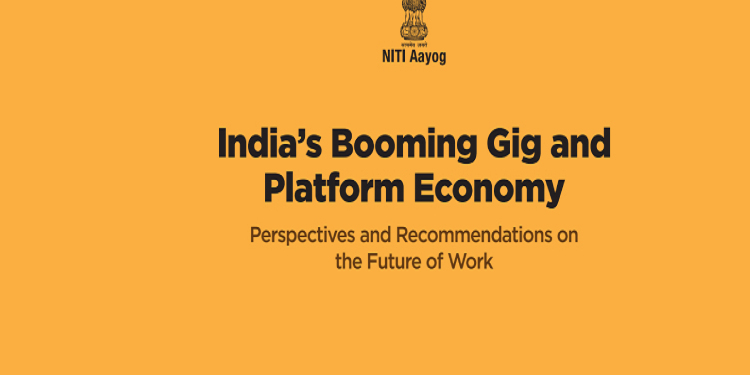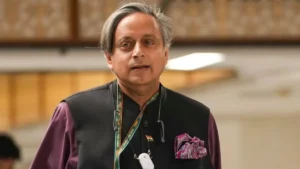A report titled “India’s Booming Gig and Platform Economy” was released by NITI Aayog. Suman Bery, vice chairman of NITI Aayog, Amitabh Kant, and Dr K Rajeswara Rao, special secretary, released the report. The study, which is a first of its kind, offers in-depth viewpoints and suggestions on the gig-platform economy in India. CEO Amitabh Kant emphasised the industry’s potential to generate jobs in light of India’s growing urbanisation, and widespread access to the internet, digital technology, and cellphones.
Buy Prime Test Series for all Banking, SSC, Insurance & other exams
Key points:
- The report offers a comprehensive methodical approach to calculating the sector’s current size and potential for employment creation.
- It examines the benefits and drawbacks of this developing industry, shows international best practices for social security programmes, and outlines plans for skill development and job creation for various worker categories in the industry.
About the Report:
- According to the research, the gig economy employed 77 lakh (7.7 million) employees in 2020–21.
- They made up 1.5 percent of India’s total labour force or 2.6 percent of the non-agricultural workforce.
- By 2029–2030, there will be 2.35 crore (23.5 million) workers in the gig economy. By 2029–2030, it is anticipated that gig workers will account for 6.7 percent of India’s non-agricultural workforce and 4.1 percent of all income.
- Currently, medium-skilled occupations make up approximately 47% of gig labour, high skilled jobs make up about 22%, and low-skilled jobs make up about 31%.
- The trend indicates that the concentration of workers with medium skills is gradually decreasing while it is rising for those with low and high skills.
- The report suggests connecting self-employed people in the business of selling regional and rural cuisine, street food, etc., with platforms in order to enable them to sell their products to larger markets in towns and cities to accelerate access to finance through products specifically designed for platform workers.
- The report recommends platform-led transformational and outcome-based skilling, improving social inclusion through programmes that educate workers and their families about gender issues and accessibility, and extending social security measures in partnership as envisioned by the Code on Social Security 2020.
Other suggestions include conducting a second census exercise to calculate the size of the gig and platform workforce and gathering data during official censuses (Periodic Labour Force Survey) to identify gig workers.
Important Takeaway for All Competitive Exams:
- Chairperson of NITI Aayog: PM Narendra Modi
- Vice chairman of NITI Aayog: Suman Bery
Find More News on Economy Here




 Which is the Largest Banana Producing St...
Which is the Largest Banana Producing St...
 Shashi Tharoor Conferred Honorary D.Litt...
Shashi Tharoor Conferred Honorary D.Litt...
 Big Change at Rashtrapati Bhavan! Lutyen...
Big Change at Rashtrapati Bhavan! Lutyen...








